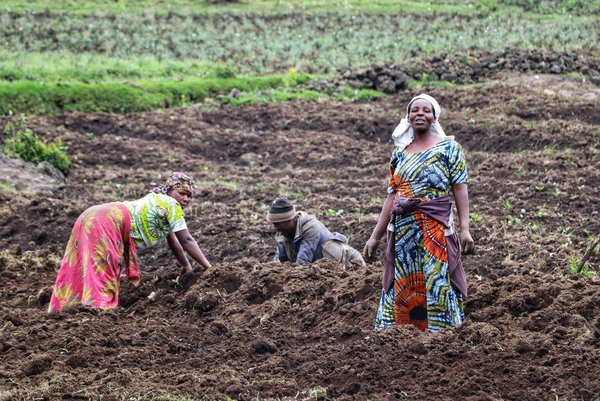- Share this article
- Subscribe to our newsletter
Germany backs Payment for Ecosystem Services projects
At COP27, Germany committed EUR 15 million to paying poor rural people for their work in preserving ecosystems. The UN’s International Fund for Agricultural Development (IFAD) reported the news on its website in November 2022.
Rural people make an essential contribution to the preservation of ecosystems. IFAD is to remunerate rural communities and small-scale producers for this work through Payment for Ecosystem Services (PES) projects. Germany is contributing to the projects by providing an additional EUR 15 million to IFAD’s Enhanced Adaptation for Smallholder Agriculture Programme (ASAP+).
Three PES pilot projects will be developed in Brazil, Ethiopia and Lesotho to help small-scale producers build their resilience to climate change, boost food production, better participate in markets and improve their access to nutritious diets. Each of the three pilots will be equally funded. All the activities under the PES projects aim to help reduce greenhouse gas emissions and boost carbon sequestration.
“We must acknowledge and harness the strategic contribution of rural people in low- and middle-income countries to improving food security and preserving vital environmental resources for future generations,” said Jochen Flasbarth, State Secretary at Germany’s Federal Ministry for Economic Cooperation and Development (BMZ), at the signing ceremony. Germany’s pledge is also a way to encourage the international community to diversify financial instruments for sustainable climate change adaptation and mitigation practices in the agricultural sector.
In Brazil, marginalised local communities will be paid to preserve forests by developing and marketing a wide array of non-timber forest products. Rural communities will protect forests by gathering, processing and selling forest products, activities that do not require cutting down or damaging trees.
Remunerated activities align with traditional practices and are an income alternative for poor and food-insecure communities.
The PES scheme in Lesotho will incentivise better water resource management in the Orange River Basin, which spans Lesotho, South Africa, Botswana and Namibia, and rural communities will be able to help restore degraded soils and landscapes.
In Lesotho and Ethiopia, small-scale farmers will be connected to the voluntary carbon credit market as a means of boosting their incomes. In these markets, companies and countries can buy credits to compensate for the greenhouse gases that they emit.
(IFAD/ile)
Read more on the IFAD website





Add a comment
Be the First to Comment